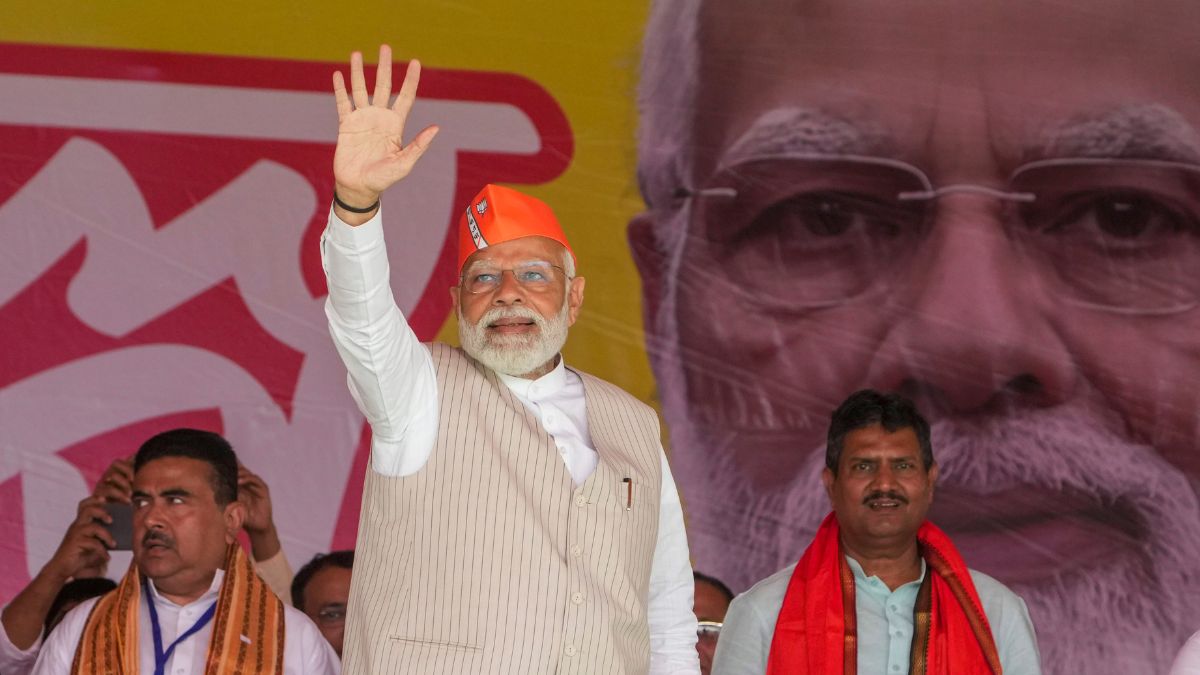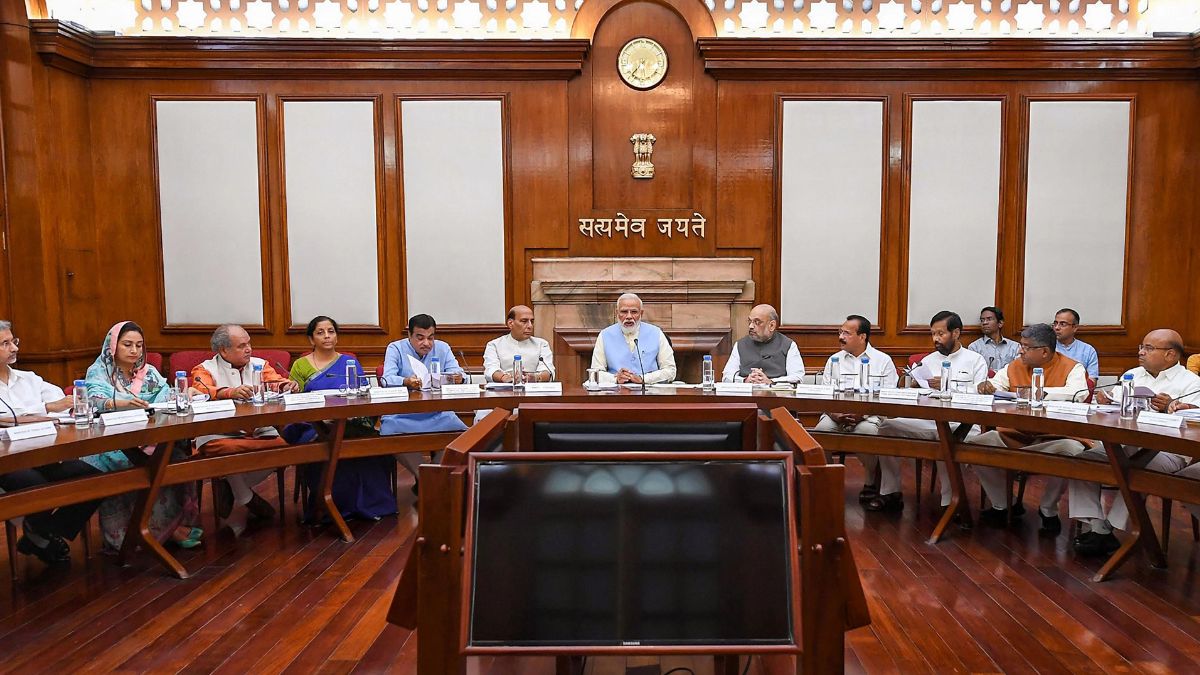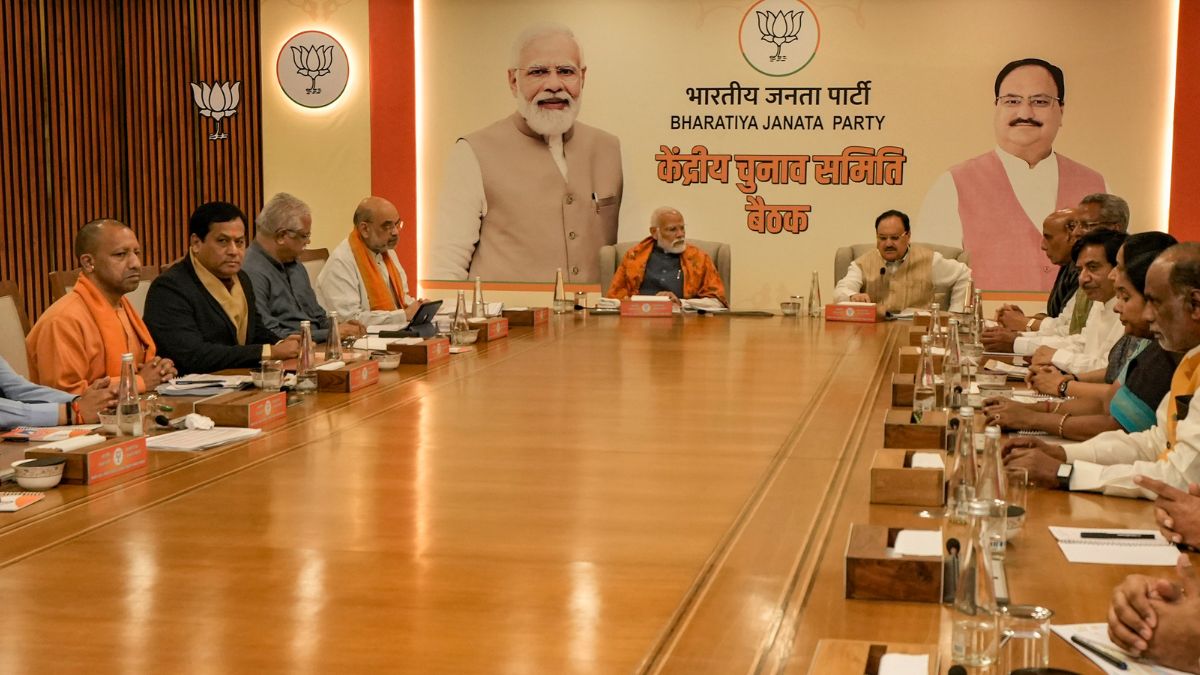Editor’s Note: A network of 60 reporters set off across India to test the idea of development as it is experienced on the ground. Their brief: Use your mobile phone to record the impact of 120 key policy decisions on everyday life; what works, what doesn’t and why; what can be done better and what should be done differently. Their findings — straight and raw from the ground — will be combined in this series, Elections on the Go_, over a course of 100 days._
Read more articles from the series here
***
Poaturkuthi (Cooch Behar): 11 April will mark the first general elections where over 3,000 villagers from Poaturkuthi in Cooch Behar get to cast their votes as Indian citizens. They are among the 15,856 ex-enclave dwellers from Bangladesh, who were granted Indian citizenship following the Land Boundary Agreement (LBA) deal between New Delhi and Dhaka in 2015. For 68 years, they lived in a no-man’s land of enclaves or chhit mahals, which were essentially foreign territories along the India-Bangladesh border.
Through the 2016 Assembly elections in West Bengal, they got a taste of the Indian campaign trail promises and rare visits from political party heavyweights. However, the poll promises made around jobs, education and health are yet to be realised.
Rabiram Barman, 80, a villager from Poaturkuthi, said, “Our long-cherished dream has come true. We have finally got a country that we can call our home, but our basic needs are still unfulfilled. Political leaders visit us only before elections, get votes and then disappear for another five years.”
Barman is among the ex-enclave villagers who underwent decades of deprivation and religious persecution. Life did change for the better in their new country. They were accorded voting rights and the West Bengal government promised them roads, jobs, quality education and healthcare. Four years later, they feel their needs have been ignored. Santana Barman, 24, a housewife, can’t hide her distress when speaking about the government apathy, “Voter ID cards, Aadhaar cards and ration cards were promptly distributed before the Assembly election. Now the time has come for the general elections, but nothing much has changed for us. I voted in the 2016 Assembly elections in the hope that the state government would give us our rights. Didi (Mamata Banerjee) speaks a lot about empowering women of weaker sections, but I have not got any benefits under the Kanyashree and Rupashree schemes.”
In Cooch Behar, 111 Indian enclaves, spread across 17,160 acres became a part of Bangladesh and 51 Bangladesh enclaves comprising 7,110 acres joined India in 2015. Poaturkuthi, which is around 50 kilometres from Cooch Behar has about 90 Hindu families and is one of the biggest ex-enclaves. These Indian citizens are still fighting for land allotment, basic infrastructure, and access to benefits from government schemes like the Kanyashree Prakalpa, which helps with children’s higher secondary education or Yuvashree, which provides financial assistance to young job seekers.
“One of the major hurdles for us is unemployment. More than 50 percent of our population is educated enough to get small jobs, but there are no job avenues for our children. Being a daily wage earner, I arranged money for my children’s education with great difficulty, but now they are jobless,” says Akhil Roy, 55. “Acute unemployment has made many of us seek opportunities in other places like Delhi, Haryana, Karnataka and Kerala,” says Roushan, 32, who works as a labourer in a cashew factory in Kerala.
Despite government funds being allocated for building pucca structures such as Integrated Child Development Services centres, community development centres and solar irrigation pumps and greenhouses, implementation of these schemes and facilities are far from satisfactory.
The situation is similar across other former enclaves. At a locality near Paturkuthi, home to around 490 Muslim families, residents have the same complaints. The most serious problem they face is lack of healthcare facilities. Barring a local healthcare centre with only a few properly trained health workers, there is no hospital nearby. “One major problem that we face when we fall sick is to get good healthcare. We have to cover a long distance, spend hours and lots of money to travel to Dinhata which is about 30 kilometres away from our home to consult a doctor,” says 35-year-old Saleha Bibi.
Locals say the promises made under the Nirmal Bangla scheme, a re-branding of the Centre’s Swachh Bharat Mission, are yet to be realised. Under this scheme, an individual is given a subsidy of Rs 12,000 for constructing a toilet, with the Centre and the state sharing funds in a 75:25 ratio. Requirements of health and hygiene are not being met, as there are not enough toilets in these areas. Those that exist were constructed by individuals with their own money.
“What does a citizen need? Minimum standards of healthcare, education and employment. However, these basic needs continue to elude us even four years after we were promised these. Another election has come, and we are told to cast our votes. But for what purpose do we vote? Be it Trinamool Congress, CPM or BJP, all are the same,” says Roshanara Bibi, 58.
However, many continue to be hopeful about the political process and leadership. Mansur Ali, 80, says, “Being a Muslim, I can say that we’re much better off in India than Bangladesh. Mamata didi is closer to us than Modi, as she called me to her stage at her rally in Cooch Behar and asked about our grievances. On the other hand, Modi remained out of our reach. He attended a political rally here and spoke about his party’s achievements, but could not utter a word about us.”
Diptiman Sengupta, assistant secretary, Bharat Bangladesh Enclave Exchange Coordination Committee (BBEECC), one of the main driving forces behind the LBA, echoes the same concern. “The exchange of enclaves by both countries became possible due to the strong political will of the BJP government led by Prime Minister Narendra Modi, who, soon after coming to power, pushed the cause of the ex-enclave dwellers. This is a government that has shown the willingness to make it a reality. What is concerning is that the people are not getting land ownership, as the documents they were given were full of errors,” says Sengupta. Lack of land ownership documents even impacts their ability to avail of bank loans, hampering their chances of getting a good education and employment.
Bangladesh completed the process of land distribution among its new citizens by 31 July, 2016. However, progress for the same has been slow in West Bengal. Prior to the general elections, to assuage the land ownership concerns of the people, the TMC began the process of land allotment. The West Bengal Land Reforms (Amendment) Bill, 2018 was brought in by the Minister of State for Land and Land Reforms Chandrima Bhattacharya and passed in the House unopposed. Mamata Banerjee, chief minister of West Bengal, had said that the Bill would help the enclave dwellers get full-fledged status as citizens of India, along with all civic amenities and citizenship rights. More recently, the chief minister instructed the Cooch Behar administration to speed up the process at a public meeting on 31 October, 2018.
Moreover, within a few weeks of being issued identity cards, people had complaints about errors in the names on these documents, making them difficult to be used to find employment across different sectors. “Our youth are not even being considered for local jobs. Integrated Child Development Services Schemes (ICDS) centres were set up, but our youth are not getting jobs,” Sengupta adds.
It is this simmering discontent that the BJP, which is in the Opposition in the state, is banking on. The party has increased its vote share from 10.5 percent to 28.5 percent in the 2016 Lok Sabha by-elections in Cooch Behar. The penetration of the BJP in the former enclaves, spread over five assembly segments of Cooch Behar and the rest of the district has rattled the TMC.
Sengupta states that the TMC government may try to appease minority ex-enclave dwellers, but it isn’t likely to work because a majority of them belong to the indigenous Rajbongshi tribe of North Bengal, which constitutes over 50 percent of Cooch Behar’s population. Though Muslims constitute 28 percent of the population, many of them support the BJP because of the party’s welfare mandate. “We are not anti-BJP. There are many Muslims who are actively participating in BJP rallies. The BJP government has given us citizenship status, and we are grateful to Modi. We want action and not lip service, and Modi has lived up to our expectations,” says Asif Ali, 54, a farmer.
(The author is a Kolkata-based freelance writer and a member of 101Reporters )


)




)
)
)
)
)
)
)
)